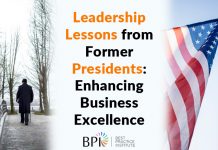From my personal in-person interview with the co-founder, Bernie Marcus
When I’ve tried to reinvent the wheel, I get bashed for not doing the familiar things. -Billy Corgan
Wholesale and retail management is all about supply chain, inventory, pricing, and revenue sharing. It’s a middle place between manufacturers and customers. And, except for what technology changes, the wholesales business is a legacy system. This was one wheel no one seemed ready to reinvent.
To really transform any discipline, leaders must come to understand themselves, surpass others, and suppress the inherited system. Few sectors are visualized as firmly linear as wholesale. When you reduce it to logistics, a mostly unfair approach, you close doors on any ability to know yourself, let go, design futures, and make decisions to move beyond, transform, and execute.
Business as an economic ecosystem
The wholesale sector depends on dynamic business ecosystems subject to internal and external forces. “Business ecosystems are communities of customers, suppliers, lead products, and other stakeholders—interacting with one another to produce goods and services.” The metaphor is ecological. It sees these ecosystems evolving in Darwinian manner over time into a semiconscious synergy. Its functions pass on from one set of involved persons to another without much notice.
At the same time, they form a biomass that only continues well under certain climate conditions. In a business ecosystem, that climate changes in response to shifts in market demand, supply resources, financial support, and more. But, the system always offers a fallback position, a security reference, a point to return to in order to reset.
Moore divided the business ecosystem model this way
- A firm has one or more core capabilities that can become the basis for providing great value to customers.
- A core product or service offer embodying the new capabilities generates a large volume of sales and realizes powerful economies of scale.
- Customers ultimately receive a “total experience.”
- Firms reinvest profits from the core products and services in further additions to capabilities, and in developing future generations of offers, an “innovation trajectory” of decreasing prices and expanding performance.
- The firm invests returns from the core business in leadership and support for the ecosystem, for “alliance community development” activities like evangelization, standardization, oversight, and dispute resolution across the community of associated firms.
- End customers and community members come to feel that the alliances that make up the ecosystem are well-led.
But, simply maintaining a system no longer competes. Left to automatic functioning, wholesale systems fail and fade away. “To initiate and sustain the business ecosystem, companies must reach out “to other power players, to other potential visionaries—and to communities of the hitherto powerless as well, such as customers—to share dreams.”
“The focus of companies in most sectors has progressed from competing on efficiency and effectiveness to competing on the basis of continuous innovation. As companies have accelerated innovation in their own businesses, they have discovered that they can’t change the world alone.”
Continuing with the metaphor, sustenance in an ecosystem depends on care and nurturing. It’s a myth that balance is the best thing. History is filled with Woolworth’s, Circuit City, Sears, and more. Like all living things, the ecosystem needs energy, imagination, and judicious innovation.
Bernie Marcus created a community ecosystem to benefit everyone.
We understood and catered to the customer.
- Bernie Marcus
Bernie Marcus is a legendary innovator in wholesale and retail. In his words, “I’m just a retired, beaten-up retailer, a first-generation American who started my life in a tenement apartment in New Jersey. BUT, I got an education, I had a vision and the guts to do something that had never been done before.”
What he did was co-found Home Depot, revolutionize customer relations, and create a fortune that would fund his generous philanthropy. A Rutgers University grad, he began in pharmacy but moved through a series of retail experiences until he became CEO of Handy Dan, an L.A.-based chain of home improvement stores.
He and co-worker Arthur Blank, after being fired in a corporate takeover, took the risk of starting Home Depot in 1979. After revolutionizing American retail with its big-box warehouse concept, he would continue in a leadership role through retirement in 2002.
His philanthropy includes sizable contributions to the Israel Democracy Institute, Georgia Aquarium, Autism Speaks, and more. As Chairman of the Marcus Foundation, Bernie supports many causes including military veterans suffering from PTSD. He and his wife are signatories to Warren Buffet’s The Giving Pledge.
I sat down with Bernie Marcus to learn how he became one of the world’s most successful CEO leaders. I found out that the biggest difference between Bernie and other successful leaders in Fortune 500 companies is his commitment and point of view about philanthropy and helping others succeed.
Today, Home Depot has over 330,000 employees, and approximately 10 million people have worked at the Home Depot throughout its years. They helped create major manufacturers that started as small manufacturers and are now major multi-billion-dollar companies. So, Home Depot and Bernie Marcus have not only changed the retail market, he has changed the landscape of entrepreneurialism and business today.
Bernie Marcus believes that helping others increases the bottom line. Early on, he and his colleagues recognized the customer and the contractor had the same problem. They had to go from one place to another for their products. And, time is money to these people. They reasoned if we can put it all under one roof and again, sell the price at a third less than the going prices, that that would have a big impact on America.
Bernie continued, “I’ve said in public speeches that between Home Depot and Wal-Mart, we brought down prices in America as opposed to the congress that has raised prices in America, so we’ve done more for America, actually, than most people have done. Yes, we created an industry, we’ve helped to generate tremendous returns to our investors, which is great, and that’s the American system, that’s what it’s all about.”
Once Bernie was fired by Handy Dan, he decided he never wanted to work for anybody again. So, he and Arthur Blank with capital partner Ken Langone created Home Depot. I thought, then, his success was a matter of a certain genius.
“I would like to say I’m a genius—I’m a genius, there’s no question about it. But, no, I had the one good ability, and that was to surround myself with people who were great. I always felt that if I surrounded myself with people who were smarter than I was, that they would make me look even better, and that’s exactly what happened.”
He surrounded himself with people who are hardworking, industrious, entrepreneurs. They were people who did not agree with him on everything, fought with him on things they disagreed on. “I loved that kind of atmosphere, it was a free-flowing atmosphere, we were partners together in our lives. If we made it, we were all going to be successful, if we didn’t make it we were all going to go down with the ship. Everybody chipped in and everybody worked their hardest.”
Bernie claims, “a story of success is based on how smart you are and the kind of people that you surround yourself with. If you surround yourself with people who agree with you all day, you’re going to be in deep, deep trouble. You might as well talk to a mirror and do it without people.”
He continued, “Many CEOs can’t emotionally; their egos can’t take it. We were fighting for our lives and egos went out the door. This was a necessity, we felt that we could work off each other, and we developed a relationship, this working relationship which was a great relationship.”
Recalling a recent visit to a Home Depot store, he marveled, “Our associates are the best in the world. I saw people that were there 26 years, 20 years, 15 years. Some are people that I personally trained who just love what they’re doing every day, love to come to work, and enjoy what they’re doing. So, what better thing can you have in your life than the success of not only your own success but the success of all these people that work for you. I think it’s great.”
He closed, saying, “ I was never Mr. Marcus, ever, ever, ever. My name was ‘Bernie;’ that was it. Everybody was first name, Arthur Blank was not Mr. Blank; he was ‘Arthur.’ We all conducted that kind of business. When I went to the stores, I didn’t wear a shirt and tie and jacket, I wore an apron the way everybody else did, and I waited on customers along with everybody else.”
Of course, Bernie has oversimplified his major contributions to organizational success. What began as a go-to place for well-stocked and varied inventory, pioneered everything now known as retailing. It’s hard to remember when Home Depot was not around, but it is a relatively young business that has created markets for Lowe’s, Costco, Sam’s Club, and other multichannel sellers.
Once a brick-and-mortar chain store, it demanded technology that could deliver what it wanted. Marcus’ Home Depot insisted that suppliers comply with their inventory and point-of-sale technology. And, then, they pushed further to teach suppliers and align their futures with Home Depot.
In doing so, they moved hardware from a 5-and-10 cent store model where people came in and browsed among the inventory. Refashioning the model into a holistic strategy that integrated supply chain management, distribution ability, and online marketing.
Bernie Marcus rose from the quicksand of a lost job. He looked to himself and the idea that had been percolating in his brain for a while. He partnered with quality leaders to find the strength to let go and design their futures. The insight, skills, and courage helped Marcus to reach beyond, transform, and execute more in the world of wholesale/retail marketing.
Louis Carter may be found at http://www.louiscarter.com . He is author of 10 books on leadership development, advisor and executive coach to CEOs and Heads of Talent Management, and the CEO of Best Practice Institute.










